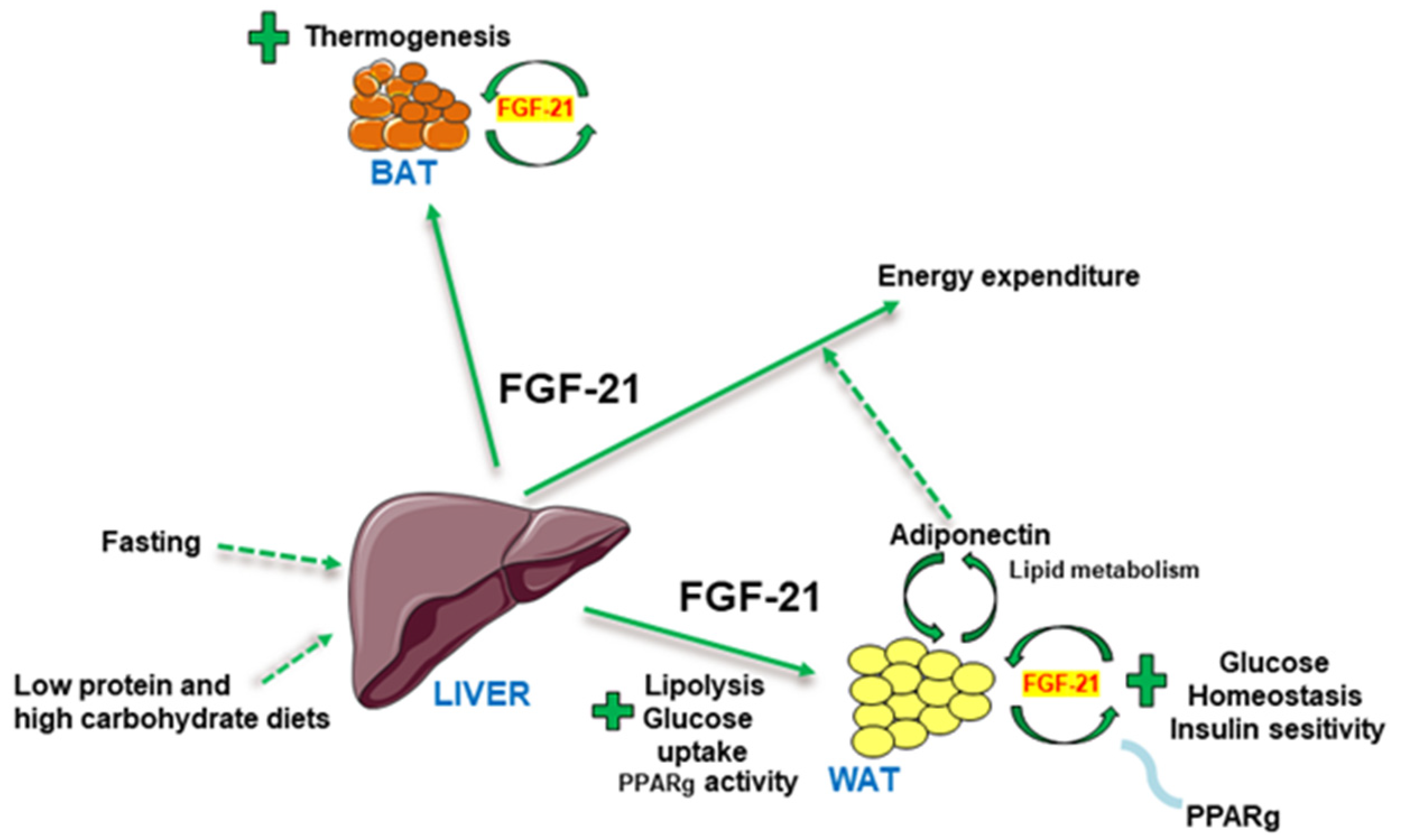Post by TexasRanger on Jan 22, 2024 21:50:45 GMT
Around 2000, a new Fibroblast Growth Factor (FGF) 21 was discovered. This new super (?) hormone is involved in a myriad of complex but incredibly beneficial interactions responsible for 'anti-aging' and health. It is involved with fat loss, arterial health, hypertension, boosting sirtuins and AMPK while inhibiting mTOR and IGF-1 and other positive actions in an animal.
So, how do you boost FGF21 naturally as attempts by pharma to manufacture the hormone haven't done well.
1. Fasting. To get the optimized levels in your blood, it would take up to a week of fasting for this to take place. Not something active, busy people would be interested in -- you'd need to be supervised to do this safely. The Fasting Mimicking Diet might get you close since you do get 800 - 1000 cal/day? Dunno...
2. Exercise. Both resistance and aerobic exercise do boost FGF21 for two - three hours. Which is good.
3. Diet.
- Keto/Paleo. Studies have reported a 40% decrease in FGF21 on a keto/Paleo diet based on studies ranging up to three months. Not good.
- Higher Carb/Protein Restriction. This takes place via several mechanisms:
(Bullet #3 may explain one of the factors regarding longevity and lower protein intake.)
I don't recall Dr. Ellington Darden, our man from the golden days of Nautilus and a former Mr. America, mentioning FGF21 in any of his books. However, even in his lastest book, Still Living Longer Stronger, he continues to push for a protein restricted diet for longevity which he's done since the 1970s. Think he broke ranks for a short period when working with a bodybuilding site, but think that lasted only a year or two.
So, you lower your protein while upping your whole plant foods, boost your metabolism and stimulate FGF21...similar to the longest lived societies globally do.

So, how do you boost FGF21 naturally as attempts by pharma to manufacture the hormone haven't done well.
1. Fasting. To get the optimized levels in your blood, it would take up to a week of fasting for this to take place. Not something active, busy people would be interested in -- you'd need to be supervised to do this safely. The Fasting Mimicking Diet might get you close since you do get 800 - 1000 cal/day? Dunno...
2. Exercise. Both resistance and aerobic exercise do boost FGF21 for two - three hours. Which is good.
3. Diet.
- Keto/Paleo. Studies have reported a 40% decrease in FGF21 on a keto/Paleo diet based on studies ranging up to three months. Not good.
- Higher Carb/Protein Restriction. This takes place via several mechanisms:
- The ingestion of whole carbs -- legumes, grains, potatoes, etc., raise FGF21 when eating lower (not zero) protein.
- The ingestion of vegetables -- fibers from vegetables generate short chain fatty acids in our gut (animal proteins do not) including one called butyrate which stimulates FGF21.
- Dietary protein restriction. In a study where men topped off a 73g/day of protein, FGF21 increased by 6x in less than a week.
(Bullet #3 may explain one of the factors regarding longevity and lower protein intake.)
I don't recall Dr. Ellington Darden, our man from the golden days of Nautilus and a former Mr. America, mentioning FGF21 in any of his books. However, even in his lastest book, Still Living Longer Stronger, he continues to push for a protein restricted diet for longevity which he's done since the 1970s. Think he broke ranks for a short period when working with a bodybuilding site, but think that lasted only a year or two.
So, you lower your protein while upping your whole plant foods, boost your metabolism and stimulate FGF21...similar to the longest lived societies globally do.






